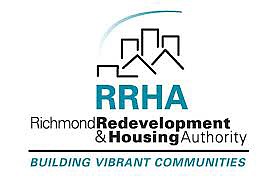Public housing residents sheltered, temporarily, from eviction
Jeremy M. Lazarus | 5/14/2020, 6 p.m.
Will there be a flood of eviction cases next month?
That’s a growing concern for renters and advocates.
A Virginia Supreme Court order holding up action during the pandemic has been extended until Sunday, June 7. But once that order is lifted, it would allow general district courts in Richmond and around the state to take up landlord requests for removal of tenants who have failed to pay their rent.
Richmond City Councilwoman Kim B. Gray, 2nd District, noted Monday that 5,000 eviction cases currently are awaiting adjudication in local courts.
Residents of public housing, however, are not as likely to be in any initial flood of evictions once the courts fully open.
First, the federal CARES Act that became law March 28 imposed a 120-day moratorium on evictions for tenants in government-financed apartments for failure to pay rent, fees or other charges. The 120-day period will last through July 25.
Second, Richmond City Council was told during an April 27 budget session that the Richmond Redevelopment and Housing Authority is on track to resolve issues with 900 families in arrears on rent and/ or electricity charges in a bid to reduce their prospects for eviction. That figure represents nearly one-quarter of all tenants living in the six largest public housing communities.
Sharon Ebert offered an optimistic view in reporting to City Council on information she said Damon E. Duncan, the departing RRHA chief executive officer, provided to her.
Ms. Ebert is the city’s deputy chief administrative officer for economic and community development.
She said Mr. Duncan told her that 500 families have signed repayment agreements to catch up on what they owe. RRHA set a May 1 deadline for families to enter into such arrangements.
RRHA spokeswoman Angela Fountain stated the number of agreements has increased to 618 as of Tuesday. She added that RRHA also has extended the deadline for tenants to sign such agreements until July 25.
“RRHA staff is working with many of our residents in arrears to get them into repayment agreements to avoid as many lease enforcement cases as possible,” Ms. Fountain stated.
According to Ms. Ebert, Mr. Duncan also believes the funding the RRHA is receiving through the federal CARES Act could enable the agency to cover the arrears of most or all of the other families.
RRHA so far has been awarded about $4 million in CARES Act funding, the U.S. Department of Housing and Urban Development announced.
However, Ms. Fountain stated that federal funds cannot be used to pay rent tenants owe. But she noted RRHA can adjust reported income and rent due from tenants who have lost jobs and submitted appropriate documentation.
Advocates for public housing residents remain skeptical and worried that RRHA will be on the eviction warpath once the federal hold on evictions is lifted.
“The real question is whether families can fulfill the repayment agreements they signed,” said an attorney who works with public housing residents and commented only on the condition of not being identified. “Many owe substantial amounts, and I am not sure they will be able to keep current and pay the additional amounts required by their plans.”







